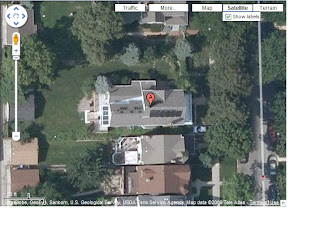Uninsured
According the U.S Census Bureau, approximately 50.7 million U.S. residents (16.7% of Americans) have no health insurance. Additionally, more money is spent per person on healthcare in the U.S. than in any other country of the world. Despite the fact that the U.S. pays more than than any other United Nations country (except East Timor), America lags behind other wealthy nations in infant mortality and life expectancy (48th in the world).
Physician Wages
Physician wages in the US is double that of Europe which is a major reason for the expensive health care. Meanwhile Americans are experiencing double-digit increases to the cost of health insurance, pay more out-of-pocket costs for doctor visits and facing rising prices for prescription medicine.
Obesity
Childhood obesity has tripled in the last 30 years – 16% of children are said to be obese (per the CDC). Overweight children are being diagnosed with many obesity-related illnesses which previously were only seen in adults. Consequently, health care costs due to obesity has risen and if allowed to go unchecked will grow to about 21% of healthcare spending by 2018.
Health Insurance
In the 2007 film “Sicko,” director, Michael Moore, described how a lady named Mychelle who had a life-threatening bacterial infection and was taken to the emergency room was told by her insurance company that she must be transferred to an approved hospital. Three hours later after transferring hospitals, she dies.
Lobbyists
Moore dramatizes this real-life tragedy because he wanted to highlight the problem with healthcare in the US, which he blames on “health care lobbyists and right-wing nuts.” Furthermore, Moore calls for the country to abolish healthcare insurance and to opt for “free, universal health care for life.” (this idea will be addressed later in the paper)
Three years later, President Obama signs the Patient Protection and Affordable Care Act which aims to reform the private-health insurance market and provide better coverage for those with pre-existing conditions.
Starting in 2014, health insurance companies will no longer be able to deny coverage to anyone with a pre-existing condition. This would seem to be beneficial to Americans in general and would impact the health insurance industry significantly.
However, all Americans will be required to purchase health insurance by 2014 or pay a fine (maximum of $695 per individual or $2,085 per family annually). This also applies to Americans who are currently happy with their health insurance – they may be forced to switch plans and get less coverage. Still, the penalties for not purchasing insurance may not be a bad option for some Americans. If a person or family is not expecting any large medical expenses, they can opt not to purchase. They won’t have to worry about any emergencies, because they cannot be denied health insurance (for pre-existing conditions).
Private hospitals, which now would have to adhere to new government-determined measures of quality will be greatly affected by Obamacare. Additionally, they will be reimbursed for Medicaid patients at a different rate and doctors may be required to perform processes not required for patients. Now subject to more government regulation and oversight, doctors will see their jobs become more difficult.
The healthcare reform bill will also drastically change the way small businesses buy and supply health insurance. Businesses with more than 50 employees and less than 100 will be required to provide health insurance which they can buy from a pool of small businesses. Business owners argue that that added expense may create more problems for business owners and is a large disincentive for hiring more people.
Other stakeholders affected would be the pharmaceutical industry. Because medicine has gotten very expensive, new requirements will be imposed on their balance sheets which will surely weaken this industry and affect upcoming research. Their quest for drug and device innovation will be seriously hampered by new government regulation.
Lobbyists have driven this point home up on the Hill. Although, they have been zealous in speaking up against taxes and fees, they failed to publicly recognize that Obamacare will hinder innovation and will cause degradation in the private sector market, a market that currently leads the world in quality and resourcefulness.
After reviewing the above list of stakeholders, just who isn’t affected by the healthcare reform bill – just about everybody is. And you can see that there are numerous problems, loopholes, bureaucracy and costs with the healthcare reform bill -- a bill that was supposed to do just the opposite.
What’s the Alternative?
In general, there is nothing wrong with healthcare in America. We have the best hospitals, physicians, health-care workers in the world and American medical innovation is cutting edge. Unfortunately, the rising cost of health care is driven by the rising cost of insurance – an industry that has often times denied the public of full healthcare, an issue called revisibility – refusing to pay for countless medical services.
To lessen the burden on our healthcare system and to bring down costs, here are
some alternative steps:
1) Let’s Move – The First Lady has launched this campaign to make fight childhood obesity by increasing physical activity and making meals more healthy.
2) Limits on Lawsuits – Because lawyers add costs, doctors are required to purchase very expensive insurance which then drives up prices
3) Rely on Innovation in IT – Expand web-based technologies that focuses on usability and customer experience.
4) Offer Incentives for staying healthy and maintaining weight (This can be incorporated within the company)
5) Eliminate tax break for employers for health insurance – this puts a chokehold on the individual market.
6) Allow more medical workers to become healthcare providers with less schooling. We don’t always need doctors to do routine check ups.
How about public policy?
The UK and Canada uses this model (albeit complaints of substandard healthcare overseas). Socialized medicine may not be a popular concept in our country that delivered the Declaration of Independence. But in a country suffering from budget deficit and a healthcare crisis, it may be the one panacea that ensures everyone gets healthcare, while keeping costs down for the states, the hospitals, the physicians, the pharmaceuticals and ultimately the patients.













